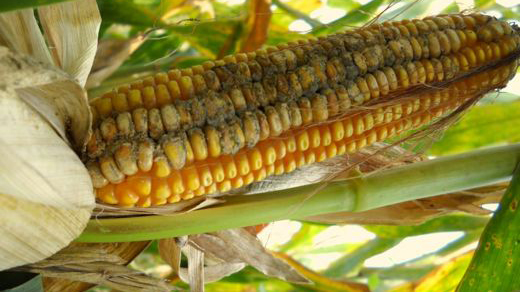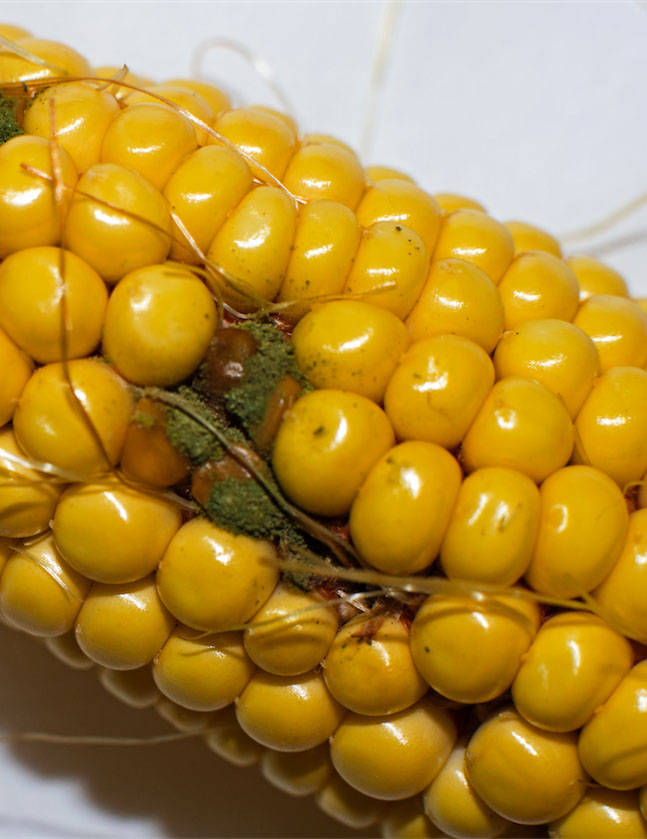 Alfatoxins on an ear of corn.
Alfatoxins on an ear of corn.University of Arizona researchers have found a way to fight soil toxins that can infect corn crops and cause human illnesses, and it does so by giving the corn its own defense mechanism.
What scientists call aflatoxins are a global agricultural problem. They cause the loss of millions of tons of crops and they threaten human health.
Researchers put genetic material into corn that triggers the plants to shut off the toxins carried in soil fungus. Those toxins can cause liver cancer, stunt children's growth and make humans susceptible to secondary infections such as HIV and malaria.
 VIEW LARGER Toxic mold on corn.
VIEW LARGER Toxic mold on corn. "In essence, we're giving the corn a chance to fight back against the fungal toxin," said Monica Schmidt, an assistant professor in the UA's school of plant sciences.
While the corn plants may still host the fungus, the toxicity is put in check. The next step, Schmidt said, is to tackle the fungal growth itself.
Schmidt said agricultural products in the United States undergo rigorous testing for toxin levels. In developing countries, the agricultural products may be consumed rather than destroyed because they are the only food available.
The Centers for Disease Control estimate than 4.5 billion people in developing countries are exposed to aflatoxins through their diet.
Schmidt said the genetically modified corn will be tested to make sure it is safe for animal and human consumption. Initial testing done at the UA showed no changes in the corn kernels.
The study results were published in the online journal Science Advances.


By submitting your comments, you hereby give AZPM the right to post your comments and potentially use them in any other form of media operated by this institution.